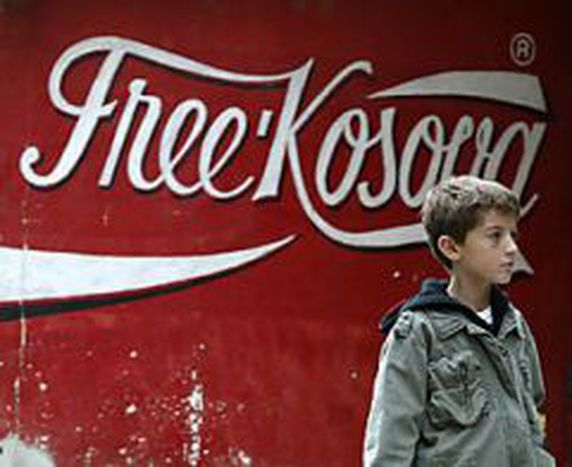
Hungary is the 17th EU country recognizing the independent Kosovo
Published on
March 19, 2008
Hungary has recognized the newly independent Kosovo in conjunction with Bulgaria and Croatia. Hungary, Bulgaria and Croatia issued a joint statement stressing that “all three are interested in furthering relations with an economically developing Serbia that fosters good relations with its neighbors and maintains its European orientation”.
The Hungarian government has asked Foreign Minister Kinga Göncz to make a presentation to President László Sólyom on establishing diplomatic relations with Kosovo. If all goes according to plan, Hungary's diplomatic mission in Pristina will be transformed into an embassy.
Serb Foreign Minister Vuk Jeremic, currently on a visit to Athens, said those countries that recognize Kosovo’s independence cannot count on good relations with Serbia. Serbia sent diplomatic notes of protest to Hungary, Croatia and Bulgaria and recalled its ambassadors. The Serbian embassy expressed “deep disappointment” over the decision, saying it could adversely affect bilateral relations. Hungarian Foreign Ministry said in response that the ministry had hoped this would not happen, but was not surprised. Serbia does not currently have an ambassador in Budapest, as the term of Predrag Cudic ended last month, and his successor, Dejan Sahovic, has not yet arrived, as Hungary’s decision was expected. Hungary does not plan to recall its ambassador to Serbia.
István Pásztor, president of the Voivodina Hungarian Alliance, asked the Serb government to guarantee the safety of 300,000 ethnic Hungarians in the province. Police were placed on alert in Hungarian-inhabited areas.
Hungary backs EU majority on Kosovo
February 19, 2008
After the EU foreign ministers decided that the member states can themselves decide whether or not to recognize Kosovo’s independence, Hungary joined the majority group of EU states intending to recognize Kosovo, which declared its independence from Serbia on Sunday. Only 17 of the 27 member states are prepared to launch the process of establishing official relations. The US was the first country to announce its recognition of Kosovo.
Despite the foreseeable recognition of Kosovo in one or two weeks, the sustained good relationship with the neighboring Serbia continues to be viewed as of prime importance to Hungary.
Hungary to take on leadership role in Kosovo next summer
December 15, 2007
Hungary's role in Kosovo will shift to leading a manouvering batallion in western Kosovo next summer, Hungarian Defence Minister Imre Szekeres said on Saturday, starting a two-day visit to Kosovo. The 370-strong Hungarian unit will take over security, patrolling, reconnaissance and checkpoint tasks in a NATO batallion, working together with Italians and Slovenes. The troops will operate in one-fifth of Kosovo's whole area, Szekeres said.
Szekeres said this was a momentous change, as it will be the first time for Hungarians to lead a multi-national unit in a foreign mission. Costs of the new mission will be unchanged - 500 million forints (about 1.97 million euros) a year.
Kosovo divides Visegrád Four
December 11, 2007
The issue of independence for Kosovo split the four prime ministers of the Visegrád group of countries at their summit in Ostrava, in the Czech Republic. Kosovo is widely expected to declare independence following the failure of negotiations with Serbia.
Slovakia is reluctant to recognise an independent Kosovo, although Prime Minister Robert Fico, who pronounced a categorical No last week, said on Monday that “It would be extremely difficult for Slovakia to accept Kosovo’s independence if it proclaims it by ignoring the wishes of the international community”. Fico said no matter how the issue is solved, the case must be treated as unique.
Hungarian Prime Minister Ferenc Gyurcsány said Kosovo’s drive towards independence is irreversible. He added that independence should occur with EU assistance, as Kosovo is not a concern of the US. No peace can be maintained in the Balkans without the realistic options of autonomy and independence. The prime minister stressed the need to make further advances towards peace and prosperity in the region. "Kosovo should not be abandoned but we also have to consider Serbia's problems," he said. He believed there was a good chance for the European Union member states to establish a common denominator regarding the future of Kosovo. "This will probably be a compromise which is as it should be," he said.
Czech leader Mirek Topolanek said Serbia must not be left out of decisions, as it is in the EU’s interest to see Serbia feel secure.



